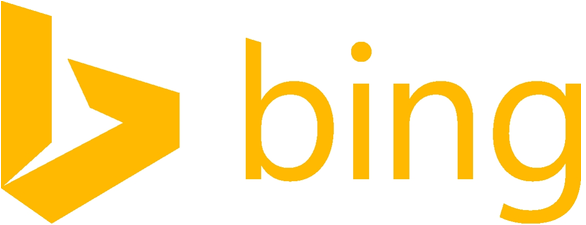Bing Redesigns Itself Starting With Its Logo

Microsoft’s Bing search engine is getting an overhaul from improved search results to a redesigned logo as it steps up to go head-to-head with Google.
The new logo steps away from its previous curly blue lettering to a more modern and seeker style, similar to Microsoft’s recently redesigned product branding. The color also changed to Orange 124 to emphasize “clarity, confidence and warmth”, according to the Bing blog post, which adds “loosely pays tribute to the orange dot from the previous Bing logo while also fully embracing the Microsoft color palette and taking inspiration from one quadrant of the corporate flag logo.”
While the most obvious change to Bing is the new logo, the search engine has also been rewritten from the ground up. Microsoft says it has improved its predictive search capabilities as you type in your query, dubbed “Page Zero.” The idea of “Page Zero” is that it can supply your information before you need a complete page of search results. The feature sounds similar to the change Google made in 2010 with Google Instant, which instantly displays search results before you finish what you are typing or hit the enter button.
Another change is “Pole Position,” which is an area at the top of the page for results it has high confidence in based on the user’s intent. For example, it you search for an image of a celebrity, a specific fact or a detailed view of the weather in a particular city, the answer is integrated at the top of the page.
Although the company is changing its interface, Bing said it will continue to provide a new homepage image every day, continuing its tradition of “showcasing inspiring and interesting photography.” The previously released Snapshot and Sidebar features will also be integrated into a single view that will give users factual information about a query and social input from friends on Facebook or Twitter.
The redesign may not lure users away from the dominant Google immediately, but the fact that Microsoft is bringing Bing to center stage shows increased confidence in its search results, which could translate into more users.